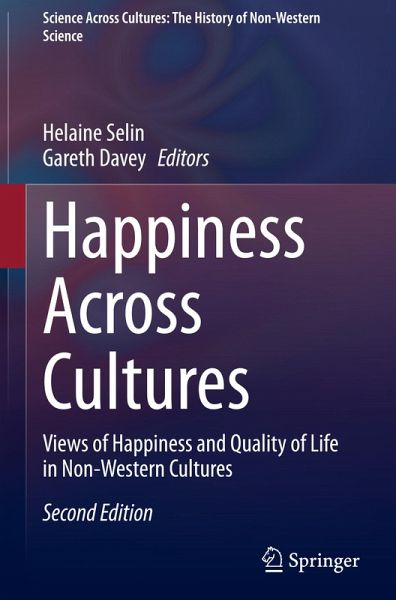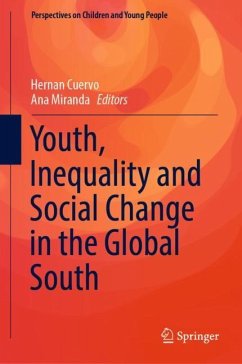
Happiness Across Cultures
Views of Happiness and Quality of Life in Non-Western Cultures
Herausgegeben: Selin, Helaine; Davey, Gareth

PAYBACK Punkte
65 °P sammeln!
This second edition of Happiness Across Cultures contains 8 brand new chapters on previously uncovered topics, such as Covid19, refugees, and violence. Different cultures experience happiness differently. Traditionally, the West is considered materialistic, and happiness is said to come from achievement and acquisition. The East is said to be more people-oriented, where happiness is a result of deep personal interactions. Thus, poor people can be happier in the East than the West, because they are not so concerned with possession and more with society. This new edition considers happiness and ...
This second edition of Happiness Across Cultures contains 8 brand new chapters on previously uncovered topics, such as Covid19, refugees, and violence. Different cultures experience happiness differently. Traditionally, the West is considered materialistic, and happiness is said to come from achievement and acquisition. The East is said to be more people-oriented, where happiness is a result of deep personal interactions. Thus, poor people can be happier in the East than the West, because they are not so concerned with possession and more with society. This new edition considers happiness and quality of life in non-Western countries and cultures. Its coverage is now more diverse and spans the breadth of the non-Western world, revealing unique perspectives of happiness and life quality embedded in rich cultural traditions and histories.














